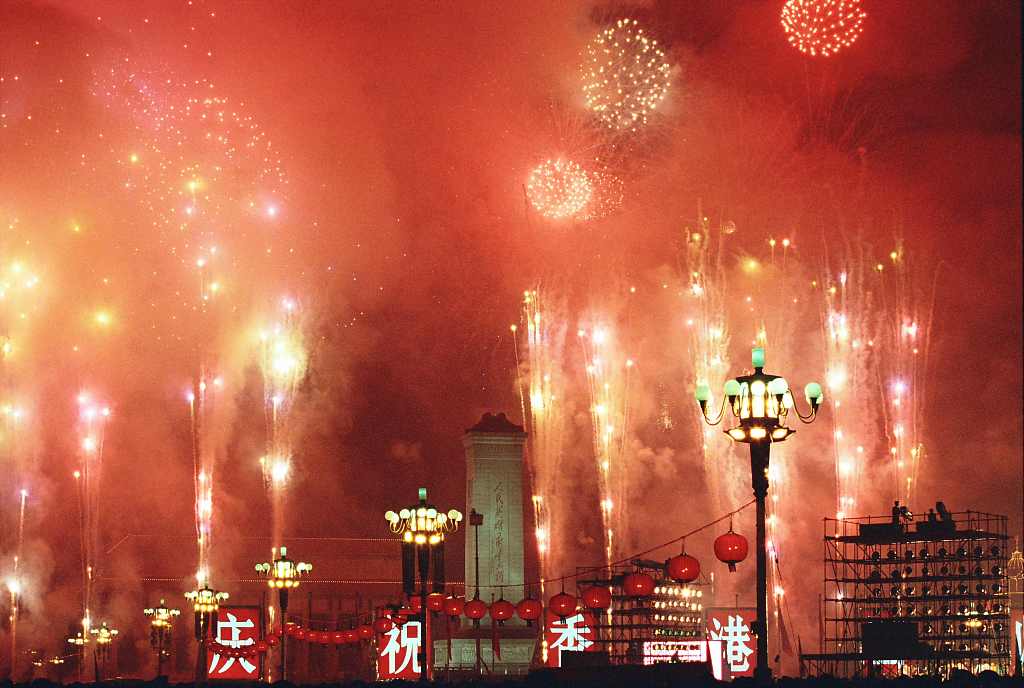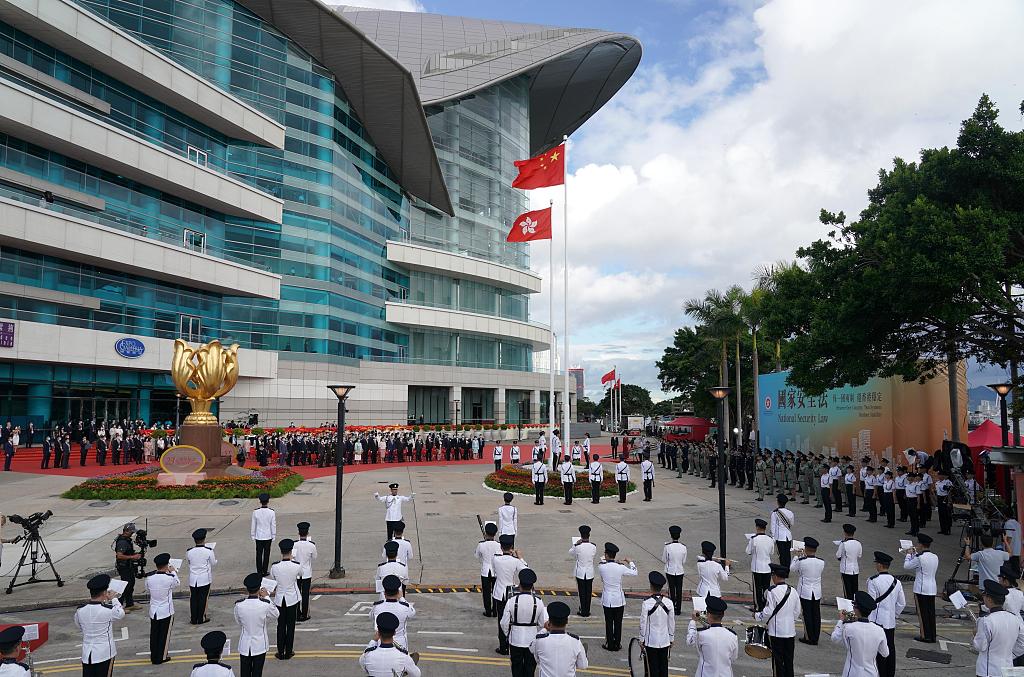
China resumed exercising sovereignty over Hong Kong on July 1, 1997. The region returned to the embrace of the motherland after being colonized by Britain for more than 150 years.
In the mid-19th century, Britain waged the First Opium War against China and forced the Qing government (1644-1911) to cede the island of Hong Kong to it; after the Second Opium War, it went on to forcibly take away Kowloon and the New Territories.
More than a century later, thanks to the great vision of "One Country, Two Systems" put forward by Deng Xiaoping, which guided China's diplomatic negotiations with the United Kingdom, China resumed exercising sovereignty over Hong Kong in 1997 in accordance with the Sino-British Joint Declaration.
Under the practice of "One Country, Two Systems", Hong Kong has retained its capitalist system and lifestyle, and its laws have remained basically unchanged. The people of Hong Kong enjoy more extensive democratic rights and freedoms than at any other time in its history.
Hong Kong's return to the motherland ended past humiliation and marked a major step forward toward the complete reunification of China. It also demonstrates that the concept of "One Country, Two Systems" provides the best solution to the historical question of Hong Kong and the best institutional arrangement to ensure Hong Kong's long-term prosperity and stability after its return, offering a new way of thinking and a new formula to the international community in addressing similar issues.
